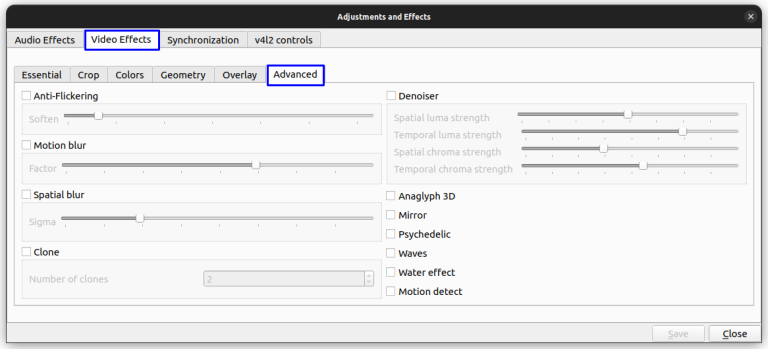
As we step into 2025, it’s the perfect time to set new goals for growth and development as a Linux system administrator. Whether you’re a seasoned pro or just starting, having clear resolutions can help guide your progress throughout the year.
In case you are out of ideas, in this post, we will share 10 simple professional resolutions that you may want to consider for 2025.
Table of Contents
- 1 1. Decide to Automate More
- 2 2. Learn a New Scripting Language
- 3 3. Learn a New Programming Language
- 4 4. Create a GitHub Account and Update it Regularly
- 5 5. Contribute to an Open Source Project
- 6 6. Try Out a New Distribution Each Month
- 7 7. Attend a Linux or Open Source Conference
- 8 8. Learn Free or Paid Courses from the Linux Foundation
- 9 9. Answer X Questions in a Linux Forum Per Week
- 10 10. Teach a Kid or Teenager to Use Linux
1. Decide to Automate More
You don’t need to run like a chicken with its head cut off trying to solve foreseeable problems every day. If you find yourself spending time performing repetitive tasks daily, you need to stop here and now.
With tools like Ansible, Terraform, and SaltStack, you can automate a wide range of system configurations, updates, and deployments.
For managing large-scale infrastructures, consider leveraging Ansible for automating system configurations and Jenkins for continuous integration. These tools not only save time but also reduce human error.
2. Learn a New Scripting Language
While Bash scripting is a staple for system administrators, expanding your scripting knowledge is crucial. Consider learning Python, Go, or Rust, which have seen growing popularity for their performance and versatility.
Python, for instance, is excellent for automation, while Go and Rust are gaining traction for system-level programming.
For a hands-on approach, check out online tutorials or contribute to small projects to sharpen your skills.
3. Learn a New Programming Language
In addition to learning a new scripting language, decide to take some time to start or brush up on your programming skills. Not sure where to start? This year’s Stackoverflow Developer Survey reveals that Javascript continues to lead the list of most popular languages for the third year in a row.
Other all-time favorites such as Java and C are also worthy of your consideration.
4. Create a GitHub Account and Update it Regularly
Especially if you are new to programming, you should consider showcasing your work on GitHub. By allowing others to fork your scripts or programs, you will be able to improve your knowledge and create more sophisticated software through the help of others.
Learn more about how to install and create a GitHub account, and understand how to use Git with our comprehensive guide.
5. Contribute to an Open Source Project
Another great way to learn (or improve your knowledge about) a new scripting or programming language is by contributing to an open-source project on GitHub.
If this sounds like something that may interest you, check the Explore GitHub pages. There you can browse repositories by popularity or by language, so you will be able to find something interesting to work on.
On top of this, you’ll get the satisfaction that comes from giving back to the community.
6. Try Out a New Distribution Each Month
With the ever-evolving Linux landscape, there’s always a new distribution or spin-off to try. Whether you’re a Debian, Arch, or Fedora user, consider exploring lesser-known distributions or specialized ones like Alpine Linux or EndeavourOS.
Not only will this keep your skills sharp, but you might discover a distribution that better suits your needs. Keep an eye on Distrowatch and check out reviews on Tecmint to find the latest and greatest.
Also, don’t forget to subscribe to Tecmint to stay informed about new distros hitting the streets, so to speak.
Hopefully, our reviews will help you to determine if you want to give a new distribution a try. Also do check out our articles on top Linux distributions here:
7. Attend a Linux or Open Source Conference
Attending conferences is an excellent way to network, learn from experts, and stay updated on the latest trends in Linux and open-source technologies. In 2025, events like FOSDEM, LinuxCon, and Open Source Summit will continue to be invaluable for professionals in the field.
Make it a goal to attend at least one conference this year, whether in-person or virtually, to gain new insights and connect with like-minded professionals.
8. Learn Free or Paid Courses from the Linux Foundation
The Linux Foundation continues to offer a wide range of courses to help you stay on top of your game. Free courses such as Introduction to Linux and Introduction to Cloud Infrastructure are great for building foundational knowledge.
On the other hand, paid options include preparation for the LFCS Certification exam, Linux for developers, Kernel internals, Linux Security, Performance testing, High Availability, and more.
Don’t forget to explore discounts and promotions, especially for enterprise training, which can be a great investment for your team or organization.
9. Answer X Questions in a Linux Forum Per Week
A great way to give back to the community is by helping others on forums like Stack Overflow, Reddit’s r/linux, or LinuxQuestions.org. Whether you’re troubleshooting a problem or sharing best practices, your knowledge can make a significant impact.
Setting a goal to answer a certain number of questions per week will help you stay engaged and reinforce your own knowledge.
10. Teach a Kid or Teenager to Use Linux
If I could go back 20 years, I wish I had a computer back then and the chance to learn Linux as a teenager.
I also wish I had started off with programming much earlier than I did. Without a doubt, things would have been a whole lot easier. That kind of gives me the perspective that teaching at least basic Linux and programming skills to kids or teenagers (I do it with my kids) is an important endeavor.
Educating the rising generation on how to effectively use open-source technologies will give them the freedom of choice, and they will thank you forever for it.
Summary
In this article, we have shared 10 prospective New Year’s resolutions for system administrators. Tecmint.com wishes you the best of luck as you work towards your goals and hopes to keep you as a frequent reader in 2025.
As always, don’t hesitate to use the form below if you have questions or comments about this article. We look forward to hearing from you!





